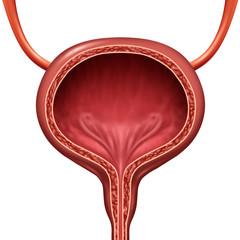Cholecystectomy, another name for gallbladder surgery, is an invasive procedure to remove the gallbladder. Laparoscopic gallbladder surgery is minimally invasive. Bile, a digestive fluid made by the liver that helps break down fats, is stored in this small organ. When gallstones or other problems affect the functions of the gallbladder, it may be necessary to remove them. After laparoscopic gallbladder surgery, changing your diet can help you recover faster and avoid complications. This article discusses what to eat after this procedure and what to avoid to ensure the best results.
Importance of a Post-Surgery Diet
When the gallbladder is removed, bile can no longer be stored. Instead, the liver constantly sends bile into the small intestine. It can cause problems with digestion because the body has to get used to the new way bile flows. The right diet can help lessen pain and aid digestion after gallbladder surgery.
What to Eat After Laparoscopic Gallbladder Surgery
Low-Fat Dairy
Protein and calcium are vital for healing, but high-fat dairy products are difficult to digest. Choose skimmed milk, yoghurt, or cottage cheese, which are all low-fat or fat-free.
Lean Protein
Protein is needed for healing and for the immune system to work. Choose lean sources like chicken or turkey breast without the skin, fish, tofu, or beans. Make sure to bake or grill these proteins or use low-fat cooking media.
Whole Grains
Brown rice, whole wheat bread, quinoa, and other whole grains are high in fibre and can help keep your bowels moving regularly. These complex carbs also give you the energy that lasts throughout the day.
Fruits and vegetables
They have important vitamins, minerals, and antioxidants that help the body heal. At first, stick to low-fat foods and avoid cabbage and cauliflower, which can cause gas.
Healthy Fats
Your body needs some fat to absorb nutrients, so choose the right kinds. Use healthy fats in small amounts, such as avocados, nuts, and olive oil.
Hydrate
Stay hydrated to aid digestion and overall health. Drink sufficient water and avoid drinks with caffeine or carbonation, which can make you feel bloated.
Foods to Stay Away from after Laparoscopic Gallbladder Surgery
High-Fat Foods
Without a gallbladder, it can be hard to break down foods high in saturated and trans fats. Cut back on fried foods, meats high in fat, and processed snacks.
Spicy Foods
Spicy foods can make digestive problems worse and make you feel sick. Stay away from them during recovery and slowly add them to your diet.
Foods that cause gas
Some foods, like beans, onions, and carbonated drinks, can cause gas formation and make you feel bloated. Avoid these as much as possible, especially in the first few weeks after surgery.
Avoid Large Meals
Eating smaller meals more often can help your digestive system get used to the fact that you don’t have a gallbladder. Overeating can cause pain and indigestion, so try to eat 5 or 6 smaller meals a day instead of 3 big ones.
Alcohol
Drinking too much alcohol can be hard on the liver and make it hard to digest food. Don’t drink alcohol during the first few weeks of recovery, and if you do, drink in moderation.
Caffeine
Caffeinated drinks like coffee, tea, and soda can cause stomach aches, so you should limit or avoid them while you’re healing.
Getting Ready for a Long-Term Diet
After the procedure, remember to eat a special diet for the first few weeks of recovery. After that, most people can slowly start eating a wider range of foods. Pay attention to your body and make changes as needed. Some people may still have trouble digesting fatty or spicy foods, while others may do fine. A registered dietician can help you change to a long-term diet that meets your nutritional needs and keeps you healthy.
In summary, after laparoscopic gallbladder surgery, it’s important to eat in a way that helps the body heal and adjust to not having a gallbladder. Patients can recover faster if they focus on low-fat, nutrient-dense foods, and avoid foods that can cause digestive problems. As with any medical procedure, it’s important to work closely with your medical team to make a plan that fits your specific needs.
Leading hospitals are committed to giving patients who have laparoscopic gallbladder surgery a full range of care, including advice on what to eat after the surgery. By working with experienced medical professionals, people who have had their gallbladders removed can feel confident about their recovery and the long-term care of their digestive health.
Read more:
What You Need To Know About Gallbladder Cancer?
https://thetechtarget.com/cervical-cancer-treatment-latest-advances-and-various-therapy-options/
